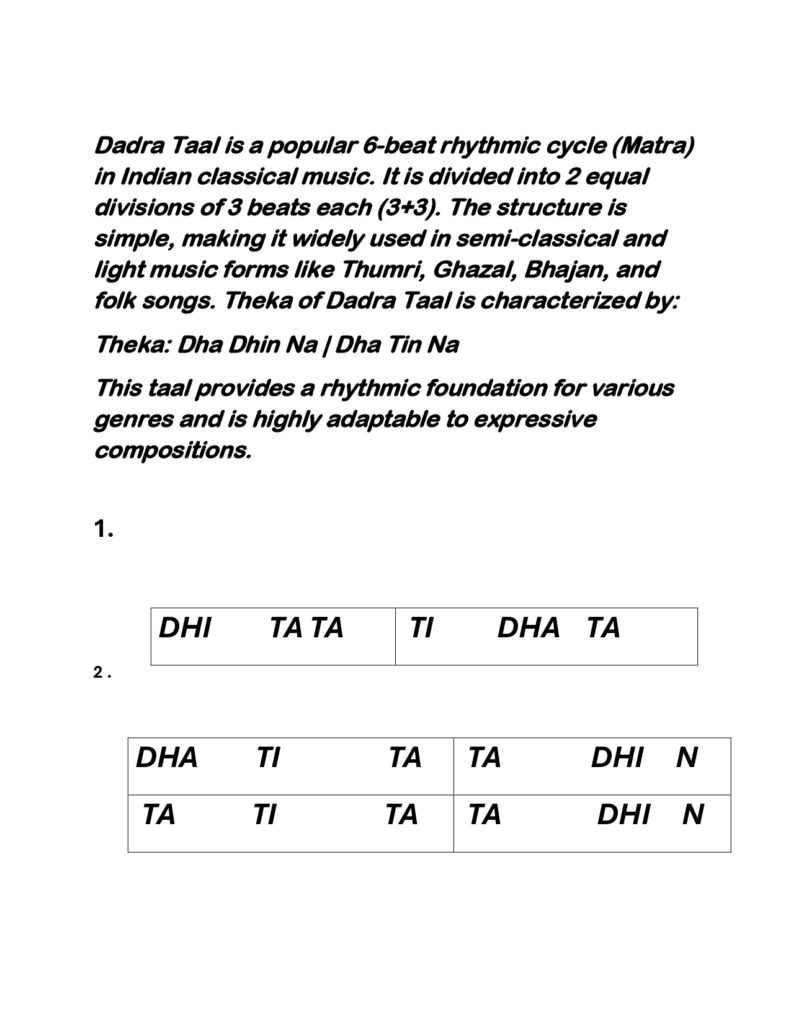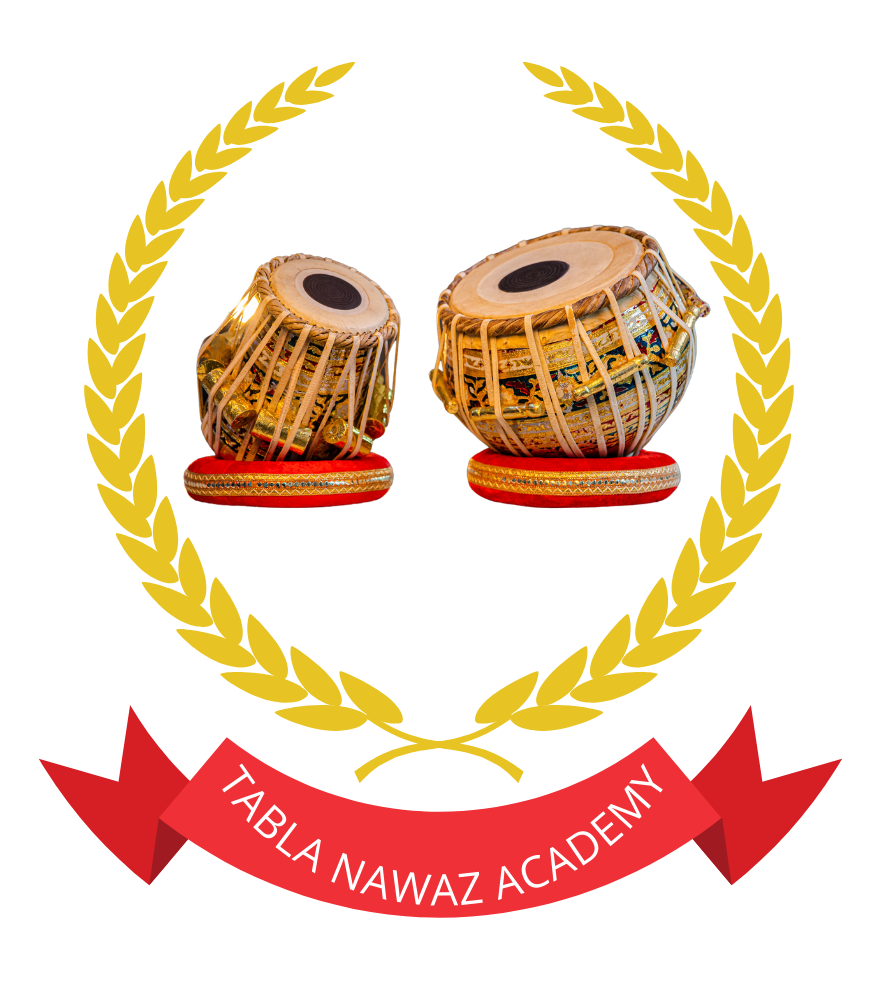#Dadra #Taal #fast #theka.
Dadra Taal is a popular 6-beat rhythmic cycle (Matra) in Indian classical music. It is divided into 2 equal divisions of 3 beats each (3+3). The structure is simple, making it widely used in semi-classical and light music forms like Thumri, Ghazal, Bhajan, and folk songs. Theka of Dadra Taal is characterized.
Introducing the-

https://www.youtube.com/@BhagawanSing
https://www.facebook.com/sbsinghtablaguru
Dadra Taal is a rhythmic cycle consisting of 6 beats (matras), divided into two equal parts of 3 beats each (3 + 3). This taal is widely used in semi-classical music, including genres such as Thumri, Ghazal, Bhajan, and Kajri. It is known for its simplicity and versatility, which allows it to support expressive and emotive compositions.
Structure:
- Matra (beats): 6
- Vibhag (divisions): 2
- Taali (clap): On the 1st beat
- Khaali (wave): On the 4th beat
Theka (basic pattern):
- Dha Dhin Na
- Dha Tin Na
Dadra Taal can be played at various tempos, from slow to fast, depending on the mood of the composition. It is a favorite among vocalists and instrumentalists for lighter classical forms, as its straightforward structure allows more flexibility in improvisation.
Characteristics:
- Semi-classical Appeal: Dadra Taal is especially popular in semi-classical music forms, providing a soft, flowing rhythm that complements expressive singing.
- Adaptability: Its 6-beat cycle fits well into diverse styles, including Bollywood songs, folk tunes, and devotional music.
- Improvisation Friendly: The simplicity of the theka makes it easy for tabla players to improvise with different variations, such as tukras, mohra, and gats.
